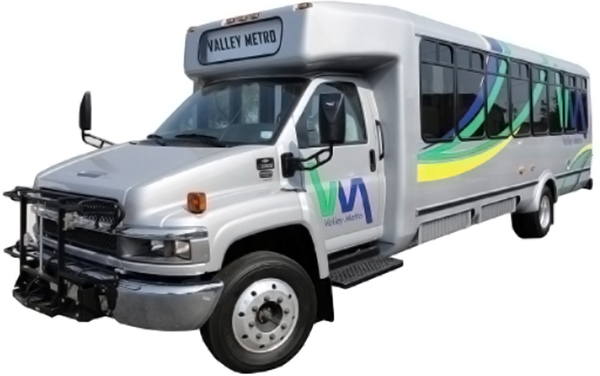- South Texas Students Meet Accordion Music Icons Los Tigres Del Norte In Edinburg Thanks To Khs America/Hohner Alianza Académica Initiative
- Fragile Planet Offers a Nighttime Wildlife Experience
- Falcons Soccer Off & Running
- Cameron County Receives Funds to Improve Two Parks
- Falcons Complete First Half of 32-6A
- School District to Help out Victims of California Wildfires
- Sand Castle Days Continued Despite Unexpected Weather
- Ready for District
- Discussion of Garbage Dumpster Rates, Agreements Between State & City on Highway Regulations, and More
- 31st Annual Shrimp Cook-Off is Right Around the Corner
Legislature to Vote on New Rides for Rio Grande Valley
- Updated: May 15, 2015
by Eric Galatas/TNS
AUSTIN, Texas – Students in the Rio Grande Valley could be getting a new ride to class if a public transit project is approved by the Texas Legislature as part of its new budget.
The two-year pilot program would connect high school graduates to all higher-education campuses in the region, which spans more than 4,000 square miles.
Tom Logan, director of Valley Metro, said the new service could be used by all community members, but would be a game-changer for students’ commute times.

The Texas Legislature is looking at partial state funding for a pilot public transit program to increase service and connect all higher-education campuses in the Rio Grande Valley. Transit ridership in the 4,000-square-mile region already is booming. Photo: courtesy of Valley Metro.
“Will be decreased from an average of three hours to maybe an hour-and-a-half, or less than an hour-and-a-half commute time,” he said. “So, that will be huge for them to reach those college and university campuses across the valley.”
A coalition is leading the effort, including the Equal Voice Network, schools and Valley Metro. They hope the program will help bring higher education – and better-paying jobs – within the reach of area residents. Only 20 percent of the region’s high school graduates earn a post-graduate degree, and the valley’s poverty rate is twice that of both the federal and state averages.
With the opening of the University of Texas’ Rio Grande Valley campus later this year, Logan said, the need to expand transit is critical. Ridership already has increased from 2,000 in 2010 to nearly 56,000 last year. In addition to the new UT campus, the program would service South Texas College, Texas State Technical College and Texas Southmost College. Buses would be state-of-the-art, Logan said, allowing students to make the most of their commute time.
“It will be equipped with wi-fi,” he said, “so they’ll have the opportunity to do their research, homework, or even catching up on current events as they ride their bus to their destination.”
The program includes bus, carpool and bike-share options. Funding for the $9 million pilot would be a mix of federal and state money. For every dollar contributed by the Texas Department of Transportation, the region could draw one matching dollar from federal funds.
